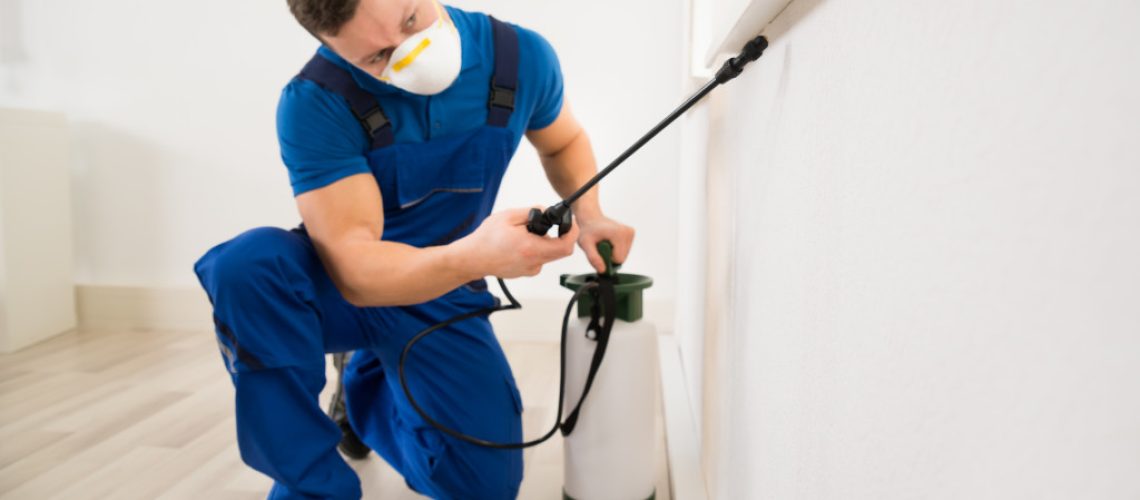Pests are unwelcome guests in any home. They can cause structural damage, spread disease and even contaminate food supplies. Fortunately, there are many ways to keep these unwelcome pests at bay. This article will show you some of the most effective methods for pest control and prevention by exploring how they work, what types of pests they’re good for, and where you might need protection from them. It’ll also offer advice on dealing with an infestation should one occur–because nobody wants that!
With this information, you’ll be better prepared to stay safe from the scourges of pests in your own home.

Regularly inspect for signs of infestation
It is essential to inspect your home for signs of infestations regularly. This will help you catch any potential problems before they get out of hand. If you find an infestation, it is important to take swift action to address it. Doing so can help protect your home and your family from the damage that pests can cause.
Several signs can indicate the presence of pests in your home. The most common signs are droppings or nests, unexplained stains or damage, burrows or tunnels, rats or mice sightings, and visible pests.
If you notice any of these signs, it is important to take swift action to address the infestation. Doing so can help protect your home and your family from the damage that pests can cause.
Seal cracks and gaps in your home to prohibit insect entry
Gaps in your home can provide an entrance for crawling insects to access your living space. These gaps may include spaces around doors, windows, electrical outlets, or cabinet seams. Gaps can also occur where utility services enter the home through the exterior wall with bulges or cracks that form over time.
Keeping these openings covered will help to prevent insects from entering your home. Use caulk or other sealants to plug up any cracks that are larger than 1/8 of an inch wide.
When you are doing a thorough inspection, look for gaps around window screens and weather stripping on doors. Make any necessary repairs so that these important entry points are closed off.
You can also install home security fly screens to prevent bugs, insects, and other pests from entering the home. The screens will make your home a comfortable place to stay in for you and your family.
Clean up areas that may be attracting bugs like rotting food, animal droppings, etc.
Bugs and other pests can be attracted to food, garbage, plant debris, or animal droppings. Keeping your home clean of any potential sources of attraction is an essential step in preventing the presence of pests in your home.
Inspecting areas outside your house where it may be easy for insects to shelter themselves from the elements can also help. Gutters and drains, waste bins, stacked firewood or lumber piles, and compost heaps can sometimes be attractive spots for insects to move into your home.
Inspect potential food sources around the exterior of your house frequently to ensure that you do not have any hidden pests. Keep your pets from defecating in areas you would like to make an infestation-free zone.
Remove all clutter from your home
Clutter in the home can provide a hiding place and food source for insects and vermin, attracting them to enter your living space. Removing any unnecessary items from around the house will allow you to see these problems more easily when you are doing your inspections.
It is also essential to eliminate any items that may be infested or would make for an easy meal during the night. Keeping clutter under control will allow you to inspect these areas easily and help prevent pests from entering your home.
Once you have removed any clutter, ensure that all nooks and crannies are inspected. Some of the most common areas include behind furniture, in cabinets, and under rugs or other floor coverings.
Check with a pest control expert if you suspect an infestation has occurred and require professional treatment
Sometimes, it can be difficult to identify whether you are suffering from an infestation or not. If you think this is the case in your home, it might be best to have a pest control expert conduct an inspection.
The assessment will help them determine how extensive the problems may be and what actions should remedy the situation.
It’s also important to note that pests can spread diseases and infections through their droppings, bites, or even saliva if they are ingested by accident. Contacting a pest control expert will help you quickly take care of the problem so that it does not become an ongoing issue.
Protecting your home against pests can seem like a daunting task, but following the essential guide provided in this article will make it much easier. Pests are not only a nuisance, but they can also carry harmful diseases that can infect you or your loved ones. Protecting your home from pests is important for the safety and well-being of everyone who lives there.





